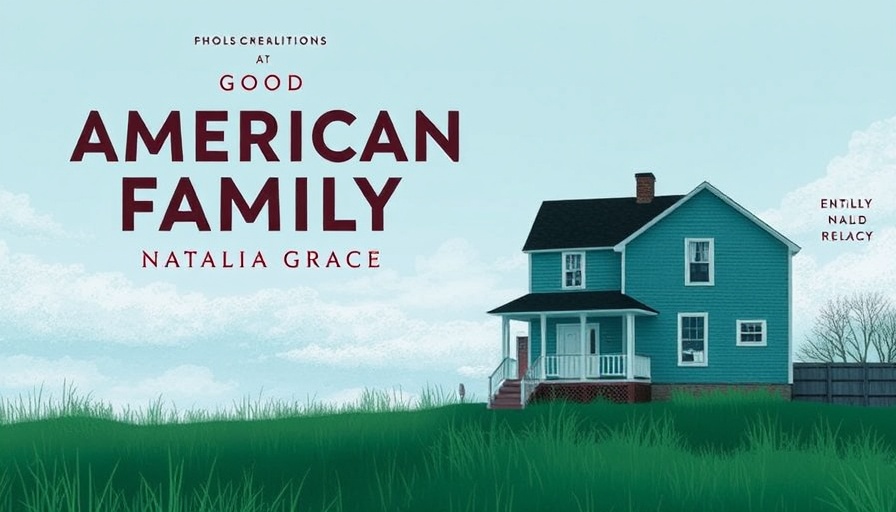
The Complex Tale Behind Good American Family
The story of Natalia Grace, a Ukrainian girl adopted by the Barnett family, is not only a chilling narrative of family trials but also a cultural phenomenon echoing themes in horror and psychological drama. Good American Family, a new Hulu miniseries starring Ellen Pompeo, offers a fresh lens on this tabloid sensation, which has gripped public interest since 2010. But the question remains: how do we reconcile the sensational headlines with the deeper emotional layers coaxed from a well-crafted narrative?
From Reality to Screen: The Impact of Narrative Framing
Viewers have come to expect a certain degree of sensationalism when it comes to true crime dramas, but Good American Family attempts to peel back those layers, exploring the darker aspects of what it means to be a family in the public eye. By utilizing multiple perspectives and a non-linear timeline, the series effectively strips away the glamour often associated with adoption stories, revealing a more troubling reality. It underscores how easily perceptions can be skewed, inviting the audience to question their own beliefs.
Momfluencer Culture: A Deceptive Perfectness
Through the character of Kristine Barnett, the show deftly critiques the notion of momfluencer culture, positioning it against the backdrop of a family in crisis. As we watch the seemingly perfect family unravel, we are thrust into a world that echoes recent documentaries, such as those involving the Stauffers and Frankes, exposing a disturbing underbelly of social media’s impact on parental expectations and public scrutiny.
Emotional Depth: Understanding the Characters’ Motivations
The casting of Imogen Faith Reid as Natalia offers a unique opportunity to engage with a complex character who embodies innocence and dread. The show invites viewers to empathize with both her and Kristine, as they navigate a maze of misunderstandings and fear. The portrayal of Natalia’s dwarfism is intricately woven into the narrative, prompting discussions around representation and the weary perceptions of 'otherness' in modern society.
Lessons Learned: The Realities of Adoption
The series serves as a poignant reminder of the emotional and psychological implications surrounding adoption. It spurs conversations on what families can do to support children from diverse backgrounds. As digital nomads often seek out deeper cultural connections when traveling, understanding stories like that of Natalia Grace can provide insights into the complexities of family dynamics in different cultures.
The Future of True Crime Dramas: A Shifting Landscape
As audiences become more discerning, the future of true crime narratives appears to hinge on the ability to present responsible storytelling. Good American Family's clever approach could set a new standard on how families are portrayed—shifting from mere sensationalism to deeper explorations of empathy and understanding. It poses a thought-provoking question to creators: how can we tell disturbing truths without commodifying suffering?
The intertwining of entertainment and cultural reflection in Good American Family ultimately acts as a commentary on our times. As viewers, we need to engage with these narratives responsibly, recognizing the human stories behind the headlines. For those interested in understanding the global implications of personal narratives, this miniseries is an essential watch. It embodies the intricate dance between societal expectations and personal identities, waiting for all of us to grapple with their implications.
If you’re intrigued by narratives of reality and the emotional complexities within them, make sure to catch Good American Family and reflect on how it challenges your perceptions.
 Add Row
Add Row  Add
Add 




Write A Comment